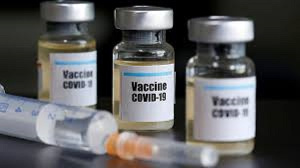As African countries continue the fight against Covid-19, there is a need for governments to collaborate in the strengthening of capacities for the continent to start manufacturing its own vaccines.
The plan can be achieved only if existing trade barriers are removed.
Various experts who took part in discussions held in yesterday’s virtual conference organised by the African Union and the Africa Centres for Disease Control (CDC) on Africa’s vaccine manufacturing for health security, highlighted the need for governments to consider working together towards the attainment of the ambitious target.
The World Health Organisation’s regional director for Africa, Dr Matshidiso Moeti, said of the 548 million Covid-19 vaccine doses administered worldwide, only 11 million or 2 percent had been in Africa.
Africa accounts for around 17 percent of the global population. AU special envoy on Covid-19, Dr Donald Kaberuka, said Africa cannot rely on international solidarity to move out of the present challenges but should think outside the box to come up with its own vaccines.
“If we have learnt anything from this pandemic, it is that international solidarity is fickle; it is very volatile. Therefore, we have to sustain ourselves.
“Over the last six years from the time we had Ebola, we realised that in spite of the enormous theoretical global disaster preparedness, we had been caught wanting. Global solidarity has limitations in the wake of a pandemic such as this.
“African countries struggled to get testing kits and PPEs and that was before we even had the issue of the vaccines. Collaboration between our own Governments will have to be stepped up so that we start doing things ourselves to sustain ourselves,” said Dr Kaberuka.
He said African leaders must work towards achieving the commitments they made in Abuja to increase domestic health financing to the health sector.
In 2001, AU countries pledged to set a target of allocating at least 15 percent of their annual budgets to improve the health sector.
“How then should Africa move forward? It is complex technically and financially but we have no choice. It will have to be done by combining resources.
“We have to think outside the box on this problem. This crisis has demonstrated that whatever we invest should be done collectively,” said Dr Kaberuka.
Founder and chairman of the Mo Ibrahim Foundation, Dr Mo Ibrahim said vaccine development could be possible in Africa if the target market is for a bigger population.
“When you look at manufacturing of vaccines, you have to consider the size of the market. Countries like China and India that created the vaccine had the critical mass.
“Now if we look at African countries manufacturing, we will need to have a continental company producing the vaccines and all 54 countries can be shareholders,” he said.
He said Europe had a regulatory body which approves vaccines and medicines and the same could be done in Africa.
Africa Export-Import Bank (Afreximbank) president, Professor Benedict Oramah, said: “Doing nothing is not an option. If we go back to the HIV pandemic, it took Africa 12 years to get antiretroviral treatment in Africa and in that time millions of Africans had died.
“We should not let this opportunity pass. Research and development is important and we should all do everything we can to start doing something.”
Co-chair of AfroChampions, Mr Edem Adzogenu, not all countries should focus on the “same thing” but should take a broader ecosystem approach to embrace everything.
Source: herald.co.zw
 Home Of Ghana News Ghana News, Entertainment And More
Home Of Ghana News Ghana News, Entertainment And More






